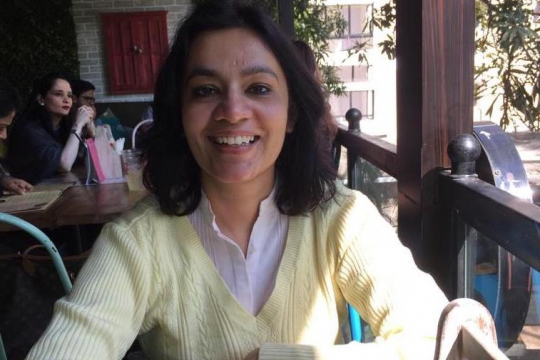Over 200 people participated in the third Women in the Economy Workshop on March 11-13. It was hosted by ISI in Delhi and supported by IWWAGE. The research presented at the conference focused mainly on three themes: health, jobs, and the workplace. Meet Farzana Afridi who organized the conference!
Why do you arrange this conference?
The field of economics in Indian academia is male-dominated. There is a need to develop more avenues for capacity-building, professional networking, and mentorship for young female economists that are primarily based in India. The workshop was intended for advanced women Ph.D. students, Ph.D. graduates in the past 5-8 years, including current Post-doctoral fellows and junior faculty. The Call for Papers invited applied papers on all themes in economics.
Can you mention some highlights from the program?
There was an open Call for Papers, widely circulated among academic and research institutes across India, and over 50 papers were submitted, of which nine papers were selected for presentation at the workshop.
The program included breakout sessions to facilitate more in-depth discussion for each paper and to provide opportunities for professional networking.
The workshop also included a keynote address by Prof. Siwan Anderson (University of British Columbia) on “The Legacy of Female Landlords in India”, chaired by Prof. Lakshmi Iyer (University of Notre Dame); and a panel discussion where Ashwini Deshpande (Ashoka University), Yamini Atmavilas (Bill & Melinda Gates Foundation), Farzana Afridi (Indian Statistical Institute, Delhi Centre), and Soumya K. Mehta (IWWAGE-IFMR), deliberated on research and policy priorities in the context of women’s labor force participation.
How many participants and where did they come from?
Over 200 people registered for the different sessions of the workshop. The participants and attendees were from various countries including India, Singapore, Hong Kong, the US, and the UK.
Who won the best paper award and what was it about?
The best paper awards went to Dr. Deepshikha Batheja (Center for Disease Dynamics, Economics & Policy), and Karmini Sharma (University of Warwick). They received a citation along with a generous cash-prize to support their research. The jury comprised Profs. Siwan Anderson, Ashwini Deshpande, and Rohini Pande.
Deepshikha’s paper explores the effect of gender integration in the workplace on worker productivity, in the context of a gender-segregated society. She presented the results of a randomized controlled trial (RCT) that she implemented in call centers in five Indian cities, which provides evidence to firms that integrating females into the workplace is not ‘costly’. She also finds that men with progressive attitudes perform better in mixed-gender teams.
Karmini’s paper analyses the impact of sexual harassment awareness training for men, on sexual harassment reported by women in their peer groups. Based on a novel lab-in-the-field experiment conducted with college students in New Delhi, she shows that such training increases men’s awareness about the issue, and leads to a significant fall in extreme forms of sexual harassment.
While announcing the best paper awards, Prof. Rohini Pande (Yale University) remarked that both Batheja’s and Sharma’s papers point towards the need for investing in men to expand the choices available to women and enhance productivity gains for the economy.
How would you summarize this year’s Women in the Economy workshop?
This year the event was virtual and the focus was on building the capacity of young women economists based primarily in India, given the low representation of women in the economics profession and the near absence of mentoring opportunities since the pandemic hit. The virtual nature of the event allowed participants to engage with well-established and renowned economists from across the world.
The workshop allowed these young women economists to receive detailed feedback and comments from experts in the field from across the world. The paper presenters felt that the discussants’ comments were deep and insightful and would certainly help them in working towards successfully publishing their paper. I am very grateful to the discussants for the effort they put into reading the assigned papers carefully and thoughtfully. Their efforts made the workshop a success in terms of meeting its objectives.
The panel discussion on the research and policy priorities for raising women’s labor force participation in India threw up several under-researched areas and issues that policy should focus on going forward – particularly the demand for women’s labor, and tackling the potential long-run adverse impacts on women due to the Covid-19 pandemic.
We hope to create such mentorship opportunities regularly for the underrepresented women in the economics community at large.
